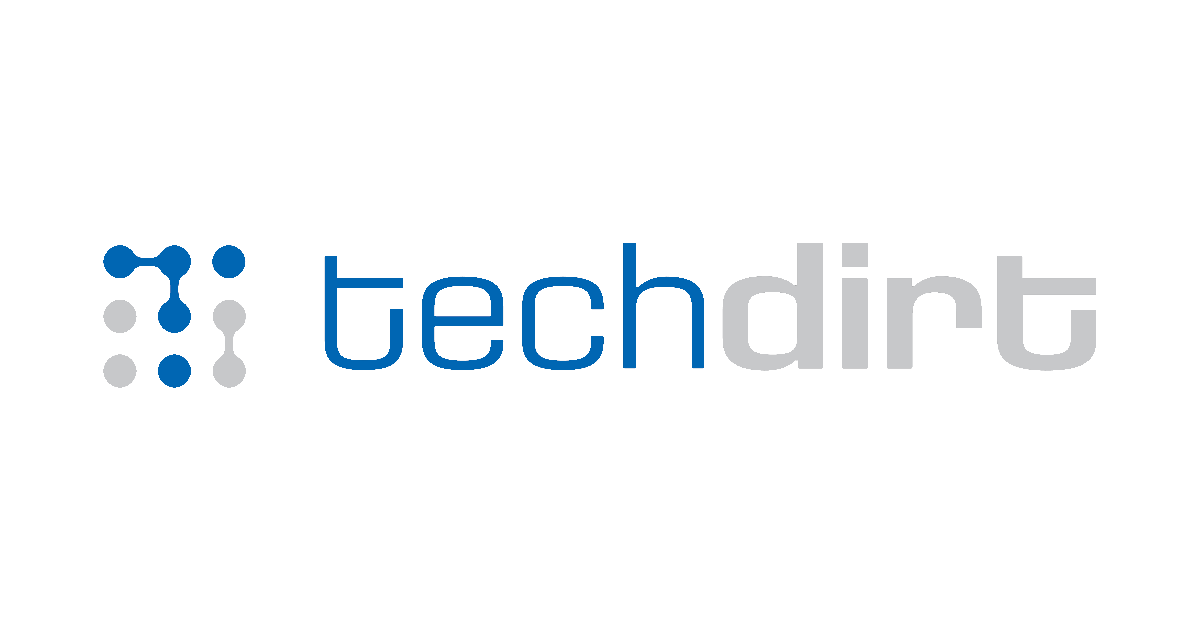from the stop-letting-Comcast-write-legislation dept
A bipartisan coalition of Senators including Roger Wicker (MI), Todd Young (IN), Mark Kelly (AZ) and Ben Ray Luján (NM) are poised to reintroduce legislation supported by telecom monopolies that could ultimately result in tech giants paying telecom giants billions of dollars for no coherent reason.
The soon to be reconstituted FAIR Contributions Act, word of which was first leaked to Axios, would direct the FCC to issue a report on “the feasibility of collecting USF contributions from internet edge providers”:
“It is important to ensure the costs of expanding broadband are distributed equitably and that all companies are held accountable for their role in shaping our digital future,” Wicker said in a statement to Axios.
While it’s true that FCC programs like the USF are facing a budgetary shortfall, the idea that “Big Tech” should be the one that pays for this shortfall has been a telecom industry dream policy since the net neutrality fight first heated up in 2003. But while forcing tech companies to pay for the telecom industry’s networks might be “feasible,” that doesn’t mean it makes actual sense.
Big Telecom has tried desperately for decades to force Big Tech companies to pay them billions of additional dollars for no coherent reason. It’s what began the net neutrality wars. This has largely involved falsely claiming that companies like Netflix and Google get a “free ride” on the internet, and should therefore be forced to pay telecom giants billions of dollars to fund broadband expansion.
It’s effectively double dipping.
Telecom giants want to monopolize an essential utility, and work tirelessly to erode both competition and regulatory oversight. This in turn has allowed them to skimp on broadband expansion and drive up prices for absolutely everybody in the chain. They also to gobble up billions in subsidies for networks they almost always fail to uniformly deploy but rarely face consequences for.
At the same time, they have long believed that tech giants owe them money for… simply existing.
This bogus claim that tech companies “aren’t paying their fair share” is decades old. Both Mike and I have debunked variations of it more times than I can count. Yet the free ride claim pops up again here, this time by Luján in his prepared comments, unchallenged by Axios:
“This report will examine how the largest tech companies can pay their fair share. The future is online, and it’s critical that essential broadband programs receive robust funding,” Luján said.
Again, the claim that tech giants “don’t pay their fair share” is a false telecom industry talking point, and policymakers and reporters should know it by now. Companies like Netflix and Google spend untold billions not only on bandwidth, but on cloud storage, transit routes, content delivery networks (CDNs), undersea transit lines, and in Google’s case, even a major last-mile broadband ISP (Google Fiber).
You can usually tell when a Senator is doing heavy lifting for the telecom sector on this subject. One, they’ll repeat the false “fair share” claim. Two, they’ll avoid talking about how the best way to shore up broadband funding problems is to implement meaningful reform of existing subsidy programs. Or that the FCC as a whole could do a hell of a lot better job standing up to monopoly power.
Most U.S. policy makers literally can’t even acknowledge that telecom monopolies exist and cause widespread problems despite decades of very obvious evidence.
If you want to fix broadband funding shortfalls, it starts with policing the untold billions we throw at local monopolies like Comcast, Frontier, or Charter for networks they always, mysteriously, half deploy. It starts with policing companies like AT&T accused of ripping off existing school broadband programs without penalty. We’re about to throw $45 billion dollars at broadband as part of the infrastructure bill, and you can be damn certain that giants like Comcast will already be getting the lion’s share of that money for broadband deployments that may or may not ever actually arrive.
Without telecom subsidy reform and increased accountability for telecom monopolies, you’re just throwing billions upon billions of dollars at an industry with a multi-decade history of widespread subsidy fraud and abuse. But you’ll notice this is never even mentioned by folks pursuing this new Big Tech telecom tax, or the major press outlets covering the policy. Not even as fleeting context.
Despite the entire proposition being stupid, telecoms have had consistent luck in getting captured or otherwise stupid policymakers to support this kind of push. In part because it helps politicians seem like they’re tackling the ever nebulous “digital divide,” a problem telecom monopolization effectively created.
There’s a big, renewed debate over exactly these disingenuously named “fair share” proposals over in the EU. South Korean regulators also implemented a similar regulatory environment that has resulted in ISPs suing Netflix just because shows like Squid Game were popular. It’s a dumb policy, and any costs borne by tech giants will just get passed on by consumers, and thrown at telecom giants with a history of fraud.
I’ve debunked this gibberish so many times now I feel like I’m living in a weird purgatorial space where historical context and factual reality simply no longer exist. These relentless efforts by the telecom lobby to tax tech giants aren’t being conducted in good faith, and any politician or news outlet that parrots them while ignoring historical context is part of the problem.
Filed Under: ben ray lujan, broadband, double charging, fair contributions act, fcc, free ride, high speed internet, mark kelly, monopolies, net neutrality, roger wicker, sender party pays, telecom, todd young
Source link











Leave a Reply